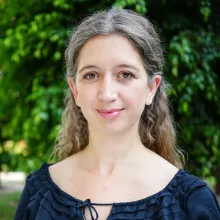
What is a just energy transition?
Photo: Anshu A. on Unsplash.It is possible to propose real solutions to current problems.
The various crises facing humanity—climate, energy, food, environment, health—as well as the enormous inequalities that cause, and are deepened by, them can be overcome if we manage to rethink the systems in which we live.
In 2021, the energy sector contributed 73.2 percent of total global greenhouse gas emissions.
The current energy system, based on fossil fuels, is unequal and inequitable. It is concentrated in large private or state-owned companies, is particularly conflictive in terms of access to resources, and is closed to social participation in decision-making.
For these reasons, progress on the energy transition is urgent.
There is no single view of energy transition; it is a concept in dispute. Toward what? For whom? How?
Conservative views focus the transition on a process of technological substitution toward a change in the energy matrix focused on renewable resources and the search for energy efficiency.
On the other hand, the most complete proposals warn that a change in the energy matrix is necessary, but not enough.
They see the transition as a process of integral transformation, territorially situated and plural, which implies the creation of new socio-political conditions that restructure the organization, ownership and distribution of the current production and consumption systems. The goal is advancing the right to energy.
If we consider the transition as a systems change, it is essential to build another type of relationship between human beings, nature and means of production.
Guidelines for thinking about the energy transition in Latin America
Based on the arguments of Pablo Bertinat, an expert on the subject, to walk this path in the region requires that we:
- Build the right to energy as a collective right, in congruence with the rights of nature. We must: take into account the damages to territories and communities created by energy development; eradicate Sacrifice Zones by recognizing their vulnerability; and guarantee respect for human rights during the transition.
- Solve energy poverty problems with clean, accessible, reliable and affordable energy. Energy projects must benefit the territory in which they are installed in terms of creation, supply and work force, in order to achieve the redistribution of wealth.
- Advance a process of energy reduction in the face of a scenario of restriction in which resources do not cover the demand. This implies an integral transition. A new productive model based on the availability of energy must be considered, as well as rethinking transportation systems, agriculture, infrastructure, etc.
- Deepen the change of the energy matrix from processes of resignification of technologies to those that are adequate, that is to say, that allow social inclusion, that are built from the communities, that are oriented to solve their problems, and that take into account the processes of acceptance of new energy enterprises.
- Promote energy democratization processes through the participation of diverse actors, particularly excluded sectors, in decision-making regarding the transition and the creation and implementation of policies, guaranteeing the rights of access to timely and complete information, quality participation and access to environmental justice, in order to ensure energy autonomy at the local level.
In conclusion, speaking of a just energy transition implies recovering energy as a tool to satisfy human needs in a context of finite resources and inequalities.
We must not start from scratch. Local communities, academic institutions, non-governmental organizations, social organizations and governments have already taken important steps towards a just, democratic and popular energy transition in the region.
With this momentum, the transition is not only desirable, but possible.
Claudia Velarde Ponce de León

Claudia Velarde Ponce de León is a Bolivian attorney and Director of AIDA's Territories Program. She works with AIDA from Cochabamba, Bolivia. Claudia has a Masters in Environmental Management from the Universidad de León in Spain, with a speciality in the management and conservation of natural areas. She has worked on public policy development, protected areas management, watershed management, climate change, food sovereignty, agroecology and environmental health.
